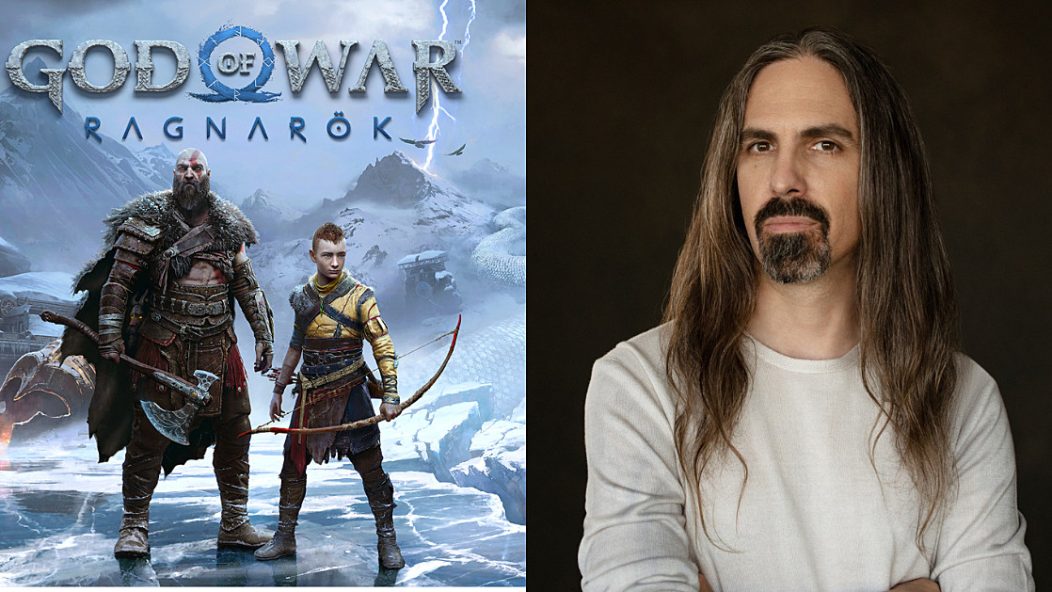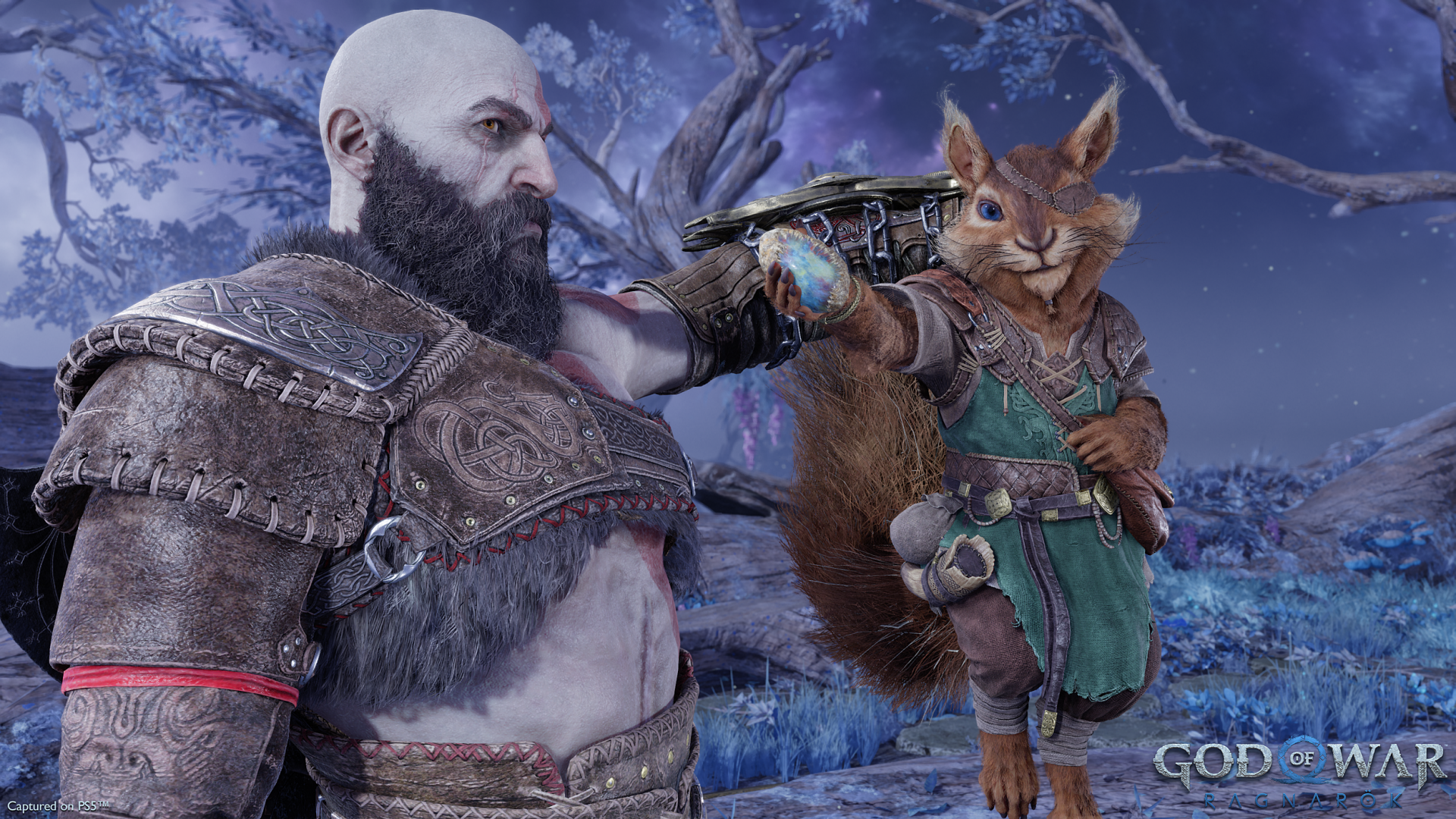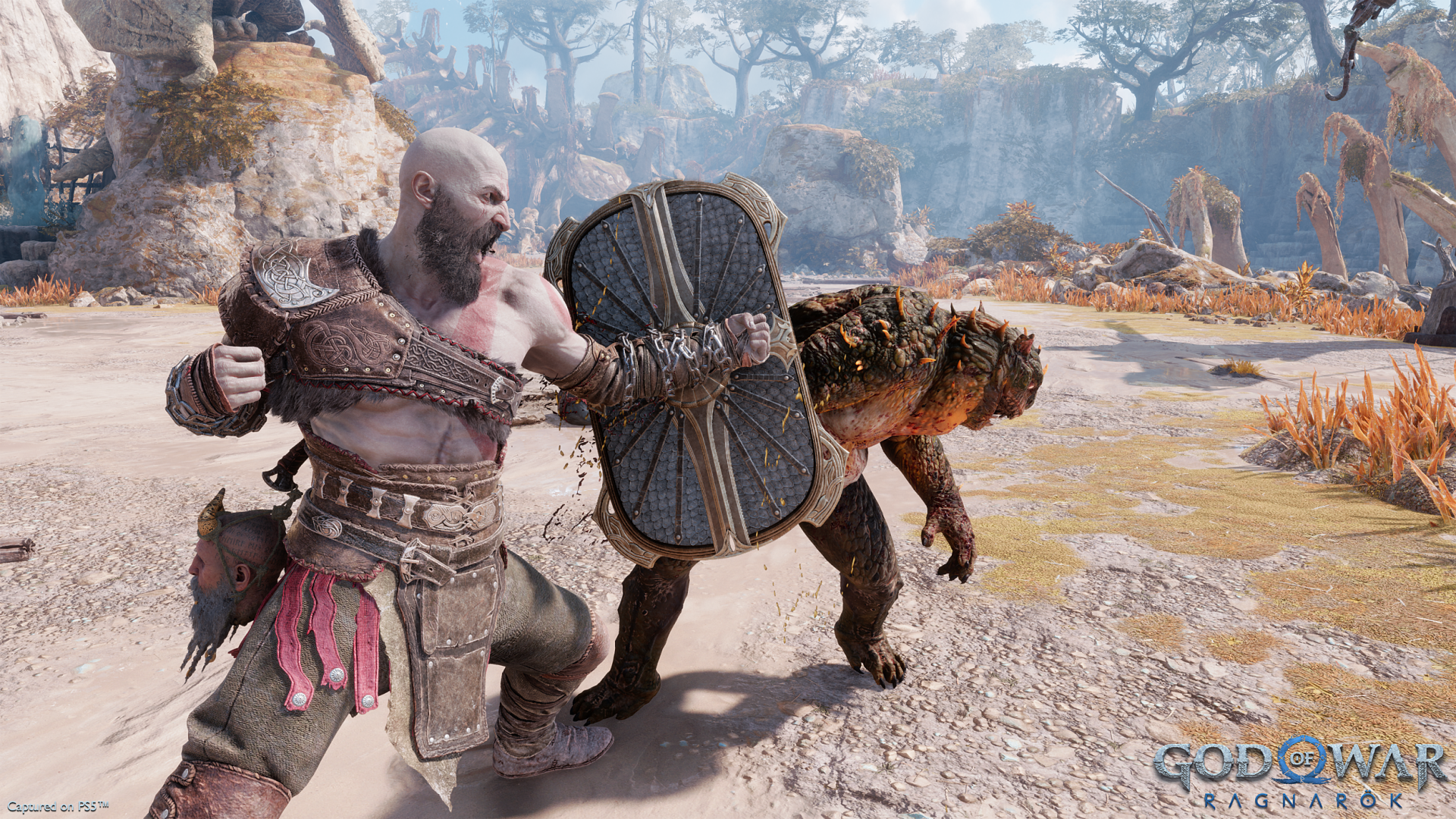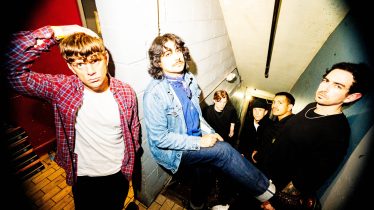
How composer Bear McCreary wrote the captivating score to God of War Ragnarök
When you’re releasing a sequel to a video game that didn’t just clean up at annual award shows, but is still largely considered to be among the best games of all time, there’s not much room for error. So when God of War Ragnarök was announced in September 2020, people immediately began presuming it would at least be a Game of the Year contender.
Finally, in November 2022, Ragnarök arrived in all of its axe-wielding glory.
Read more: What is the metaverse? A beginner’s guide to virtual worlds
Aside from being a frontrunner for this month’s award shows (alongside this spring’s cultural phenomenon of Elden Ring), the action-packed title focused on the semi-reformed godslayer Kratos and his son, Atreus, did more than just light up critics’ review scores. The emotional depth and drama within the game’s narrative rivals that of the most premium TV shows and biggest blockbusters, catching gamers expecting a violent brawler off-guard at times (not that there’s any shortage of incredible battles within the title itself).
To go with that dramatic roller coaster of a narrative, Santa Monica Studio brought in the only composer it could trust with scoring such an adventure — the same one who handled musical duties for its 2018 Game of the Year-winning predecessor. But Bear McCreary isn’t just one of the biggest names among video game composers, he’s also won an Emmy and composed for shows like The Walking Dead and Battlestar Galactica, as well as movies ranging from 10 Cloverfield Lane to Godzilla: King of the Monsters.
Alternative Press spoke with McCreary to chat about the latest PlayStation exclusive, his onscreen debut, and possibly adding a Grammy to his award cabinet.

[Santa Monica Studio/ Sony Interactive Entertainment]
Now that God of War Ragnarök is out and already a huge hit with both fans and critics, is there a sense of relief that it lived up to expectations?
Seeing the critical and fan response come in is very validating, because when I read the script for this game more than three years ago, I really felt that we had the potential to make something spectacular. I don’t think anybody dared say out loud that we might top the first game — we were just hoping to continue it and honor it, because we had all done great work on it. But deep down inside, I really wanted to be a part of something that would feel truly like one of those great two-parters, and a saga that felt complete — not just another entry in a franchise, but something that’s really narratively significant and emotionally significant to millions of people. So, it does seem like that happened, and that feels really good.
It seems like you got to play around musically a bit more this time as well, seeing as the game hits a lot of different environments and emotions.
That was genuinely intimidating and almost overwhelming. I was hired into the franchise in 2014, so God of War has been a part of my life nonstop for eight years now. At that point, we were reinventing the franchise. There was no direction to maintain any musical continuity with the older games, because this new game had a new tone. So I dove into it with reckless abandon, and I wrote themes that were very emotional, very melodic, very lyrical and daring compared to what I think fans were expecting. The second time around, though, I was under the shadow of my own work — and the pressure to write music that would mean as much to fans as the score that I had written for the 2018 game was real.
The biggest challenge was writing the theme for Atreus, [one of the most important characters] God of War (2018). His arc was represented with two themes: one for Faye, his mother, and one for Kratos, his father. In all his scenes, it’s like a musical tug of war going this way and that way. Where is he going to land? How is he going to identify? Which of his parents is he going to embrace? In the new game, he’s becoming his own person, so I had to write a theme that would be as memorable and iconic as those two. That was a little terrifying. You add on top of that, the game goes to all nine realms [in Norse mythology], and I had a challenge on my plate.
As someone who’s been scoring TV, film and video games for 20 years now, how does a really cinematic and narrative-driven game like God of War Ragnarök compare to some of the other titles you’ve worked on?
My experience is in narratives. That’s where I was pulled into video games, because game developers wanted me to bring that experience with me. I might have surprised people originally with how much of a gamer I was and remain. In my first video games — one of which was for Sony, called SOCOM 4 U.S. Navy SEALs about a decade ago — I would start asking questions about the music implementation. “Why do you hear the same piece of music every time a character dies?” “How come I hear a crossfade instead of hearing the music being performed in a different way?” “Why do I hear the music before I see a boss encounter?” On and on and on.
I realized later that I was describing fundamental challenges to game design that had not been solved in decades, yet the Sony team on SOCOM 4 — and again in God of War (2018) — looked at my requests as challenges. They worked with me to rewrite their audio engine. The SOCOM 4 audio engine became the Sony audio engine for years. Then we changed it again for God of War, and then we changed it again for God of War Ragnarök. I think that’s one of the reasons we worked so well together. Sony is such a top-notch team on a technical level, an implementation level and on a creative level. I’m able to bring this cinematic, melodic identity to the score, and at the same time, I have a lot of thoughts and ideas about the adaptive layers and the gameplay mechanics. I’ve been playing video games for my entire life, so I think that makes me an interesting crossover type of composer. Even though I don’t score a lot of games, I’ve played a lot of games, and I’ve put a lot of time into thinking about what makes a great gaming experience.
 [Santa Monica Studio/ Sony Interactive Entertainment]
[Santa Monica Studio/ Sony Interactive Entertainment]
Were there any moments during the game’s development where you saw or read something and a lightbulb went off where you knew exactly what you needed for that scene?
If I could have my wish, I would write 40 hours of music for a 40-hour game like God of War Ragnarök. It’s not that there’s a moment where I think about a certain musical phrase, because I think about all of them. The reality of scoring games is taking a set number of hours and being able to implement it, adapt it, change it, and evolve it so that you, the gamer, feels like you’ve heard 40 hours of music. That’s the goal. But there were certain moments that stood out instantly. The big, dramatic character deaths and twists, heartbreaking revelations, the opening cinematic — there were certain things that I read on the page or where I would see the [motion capture] and I would immediately start humming a theme or a melody that I knew I’d want to hear there. Or, if there was a new character — like when we meet Thor or when we meet Odin — I would start feeling what I want the music to make you feel when you experience that.
I worked really closely with the team [at Santa Monica Studio] and would have spirited discussions about where we put original music. … I’m always challenging them to let me write more to help tell that story. When you have a dev team like Santa Monica Studio, they’re bringing their A game to the project. Then you have somebody with my wealth of experience, and the combination is really cool. They bring out the best in each other.
With how much excitement and hype the game had leading up to its release, were you nervous about how people might feel about it at all?
I really wasn’t worried about the music part at all, but I was worried about my acting chops.
That’s right. You’re also in the game for the first time.
Yes, and the idea that millions of gamers were going to hear me deliver dialogue and see my visual performance as this character, Ræb, a dwarf in Svartalfheim, was terrifying. I had lines! I did mocap! I had scenes with Kratos! I’m interacting with Atreus and Mimir! I was pretty nervous, but I trusted Eric Williams, the director, and Matt Sophos, the writer and one of the narrative leads. I knew that they were going to let me come in and do these lines, but if I didn’t do a good job, they wouldn’t put it in the game. As the game came out and the clips started showing up on YouTube, people were tagging me. That was pretty delightful — realizing how many people are having the virtual experience of walking into a tavern, seeing me playing my hurdy-gurdy, and talking to me. That’s a surreal experience.
In addition to everything else going on, you’re nominated for a Grammy this year for your work on Call of Duty: Vanguard, and it’s the first time video games have been included in their own category as Best Score Soundtrack For Video Games And Other Interactive Media.. You’ve already got an Emmy under your belt, but what’s that like to be in this first group of Grammy nominees now?
Call of Duty: Vanguard was an incredible experience, and I love working with the team at Sledgehammer Games. That theme is a catchy one, and I’m really honored to be nominated. I feel like [composer] Austin Wintory [who is nominated for Aliens: Fireteam Elite] deserves it because he’s the first composer to ever be nominated for a Grammy for video game music [for Best Score Soundtrack for Visual Media back in 2013 for Journey]. It would be fitting if he’s the first one to win it. But it’s truly just an incredible honor to be in that first group of people nominated in a new category.
And you could be back next year for God of War Ragnarök, including the track you did with Hozier, “Blood Upon the Snow.”
The song I did with Hozier plays at the actual end of the game, and I highly suggest you watch the cinematic that precedes it. It was an incredible chance to collaborate with a world-class songwriter and singer, and Hozier was so enthusiastic about diving into the lore of God of War. The perfect way to end my experience scoring God of War Ragnarök was to create this really emotional, heartfelt song, and it’s surprising to me because I think God of War is full of surprises as a franchise. We experience newer and newer depths of emotional impact with every game. I wasn’t expecting to be able to write a song like “Blood Upon the Snow” for God of War Ragnarök, so I’m certain that fans were not expecting to hear Hozier’s beautiful, rich Irish tenor come in over a hurdy-gurdy drone at the end of the experience.
There are so many wonderful pieces of music that I got to create for this game. My experience was unforgettable. I hope gamers out there experience one-tenth of the thrill that I had when they play it.








